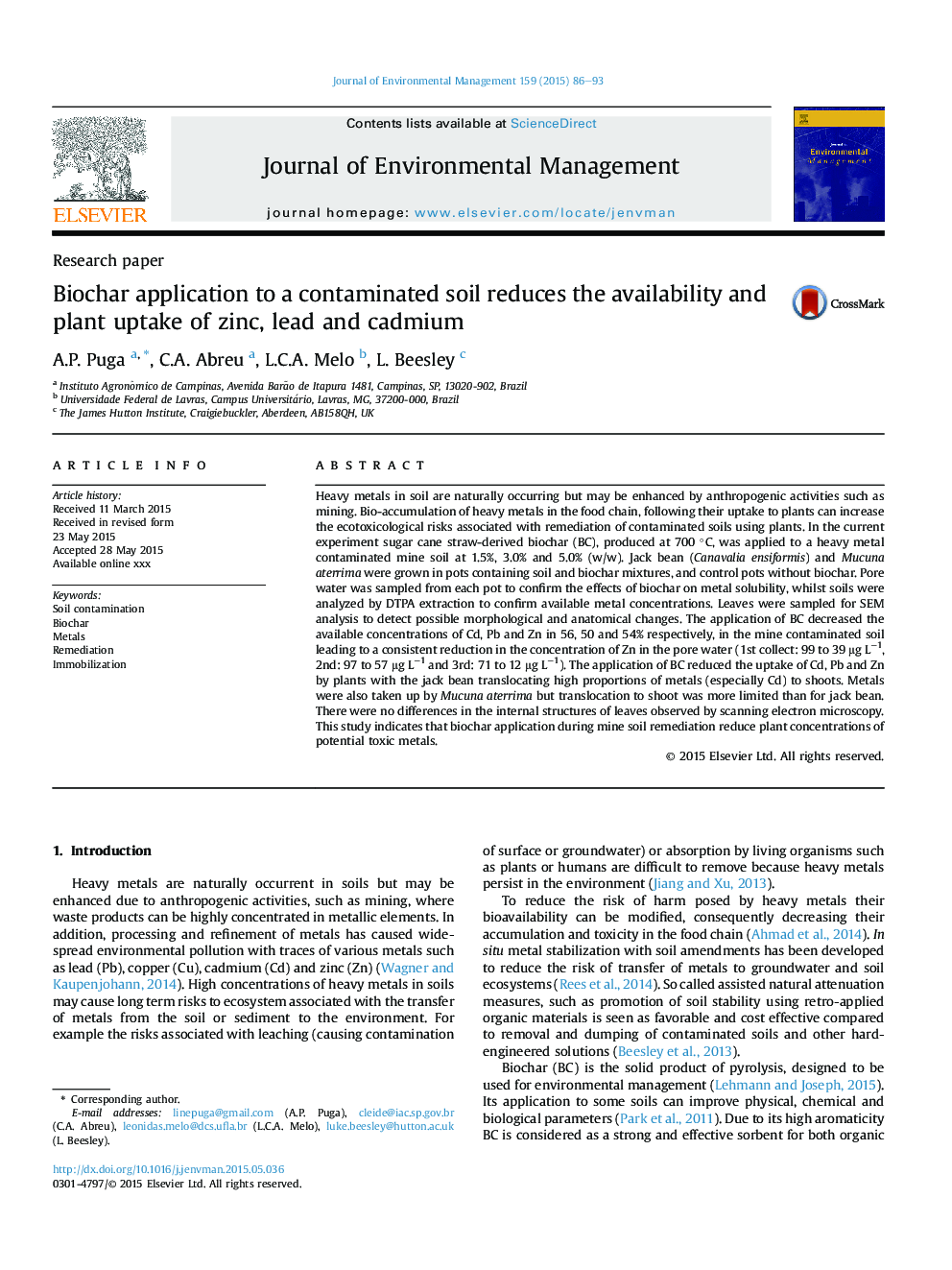| Article ID | Journal | Published Year | Pages | File Type |
|---|---|---|---|---|
| 7481966 | Journal of Environmental Management | 2015 | 8 Pages |
Abstract
Heavy metals in soil are naturally occurring but may be enhanced by anthropogenic activities such as mining. Bio-accumulation of heavy metals in the food chain, following their uptake to plants can increase the ecotoxicological risks associated with remediation of contaminated soils using plants. In the current experiment sugar cane straw-derived biochar (BC), produced at 700 °C, was applied to a heavy metal contaminated mine soil at 1.5%, 3.0% and 5.0% (w/w). Jack bean (Canavalia ensiformis) and Mucuna aterrima were grown in pots containing soil and biochar mixtures, and control pots without biochar. Pore water was sampled from each pot to confirm the effects of biochar on metal solubility, whilst soils were analyzed by DTPA extraction to confirm available metal concentrations. Leaves were sampled for SEM analysis to detect possible morphological and anatomical changes. The application of BC decreased the available concentrations of Cd, Pb and Zn in 56, 50 and 54% respectively, in the mine contaminated soil leading to a consistent reduction in the concentration of Zn in the pore water (1st collect: 99 to 39 μg Lâ1, 2nd: 97 to 57 μg Lâ1 and 3rd: 71 to 12 μg Lâ1). The application of BC reduced the uptake of Cd, Pb and Zn by plants with the jack bean translocating high proportions of metals (especially Cd) to shoots. Metals were also taken up by Mucuna aterrima but translocation to shoot was more limited than for jack bean. There were no differences in the internal structures of leaves observed by scanning electron microscopy. This study indicates that biochar application during mine soil remediation reduce plant concentrations of potential toxic metals.
Related Topics
Physical Sciences and Engineering
Energy
Renewable Energy, Sustainability and the Environment
Authors
A.P. Puga, C.A. Abreu, L.C.A. Melo, L. Beesley,
